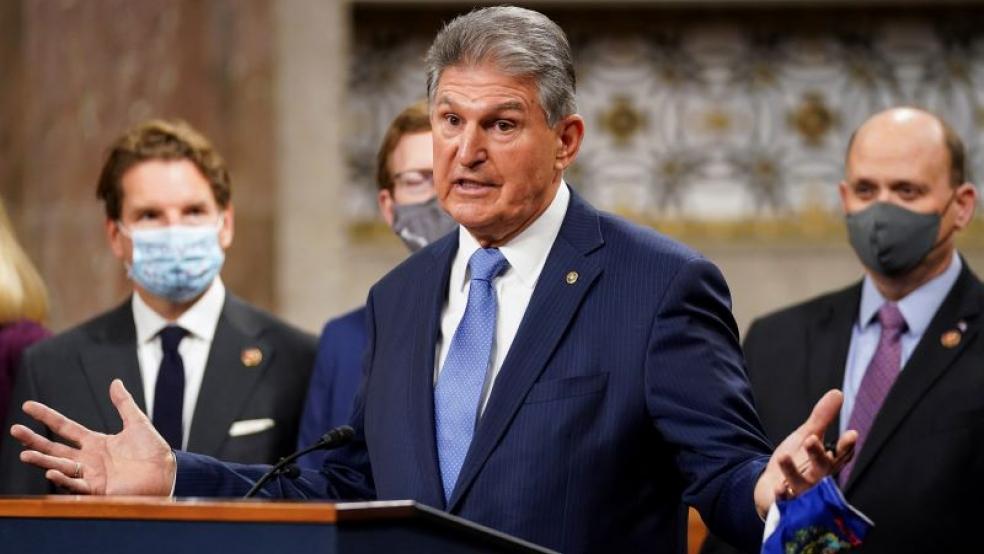A bipartisan group of lawmakers on Monday unveiled the details of their $908 billion plan to provide emergency relief for the U.S. economy.
Speaking at a press conference in Washington, Sen. Joe Manchin (D-WV) dropped two bills onto the podium, one outlining a wide range of relief spending totaling $748 billion and another that combines $160 billion in state and local government funding with Covid-related liability protections for businesses, schools and other organizations.
The larger bill, which has unanimous backing from the group of lawmakers, includes:
- enhanced unemployment benefits of $300 per week for 16 weeks;
- an extension of emergency unemployment assistance programs;
- $300 billion for small business loans and grants through the Paycheck Protection Program;
- $82 billion for education, including $54 billion for K-12;
- $45 billion for transportation, including airlines and public transport;
- $35 billion for health care providers;
- $25 billion for rental assistance;
- an extension of the eviction moratorium until January 31;
- $16 billion for testing, tracing and vaccine distribution;
- $13 billion for food assistance;
- $13 billion for farmers, ranchers and fisheries;
- $10 billion for broadband;
- student loan forbearance extended until April 1, 2021.
The second bill contains the more controversial issues that still divide the negotiators, largely along partisan lines. It includes a formula and timetable for the dispersal of $152 billion in aid for state and local governments, along with $8 billion for native American populations. And it provides legal protection for organizations and standards for lawsuits in the wake of the pandemic.
The group divided the bills to make it possible to jettison the controversial elements while still moving ahead with the bulk of the relief spending.
What’s not in the bill: The package does not include direct payments, an idea that is popular with most Americans and a handful of lawmakers, including Sens. Josh Hawley (R-MO) and Bernie Sanders (I-VT).
“Congress cannot go home for the Christmas holidays until we pass legislation which provides a $1,200 direct payment to working class adults, $2,400 for couples and a $500 payment to their children,” Sanders said Monday.
Sanders urged Democratic leaders to reject any deal that fails to include individual payments. And he criticized the relatively small size of the bipartisan proposal, which relies largely on unused funds from an earlier relief effort. “What kind of negotiation is it when you go from $3.4 trillion to $188 billion in new money? That is not a negotiation. That is a collapse,” Sanders told Politico.
What’s next: While the lawmakers said the bills are ready for a vote, it’s up to leaders in the House and Senate to move the package forward. “Now it's up to the leadership to take it, and make this happen on a timely basis," Manchin said.
Much depends on whether congressional leaders are willing to embrace money state and local governments and liability protections for businesses — or leave them both behind.
Senate Majority Leader Mitch McConnell (R-KY) spoke about the need for additional Covid relief Monday. “The next several days are going to bring about one of two outcomes,” McConnell said. “Either 100 senators will be here shaking our heads, slinging blame and offering excuses about why we still have not been able to make a law . . . or we will break for the holidays having sent another huge dose of relief out the door for the people who need it.”
McConnell did not mention the bipartisan proposal directly.




